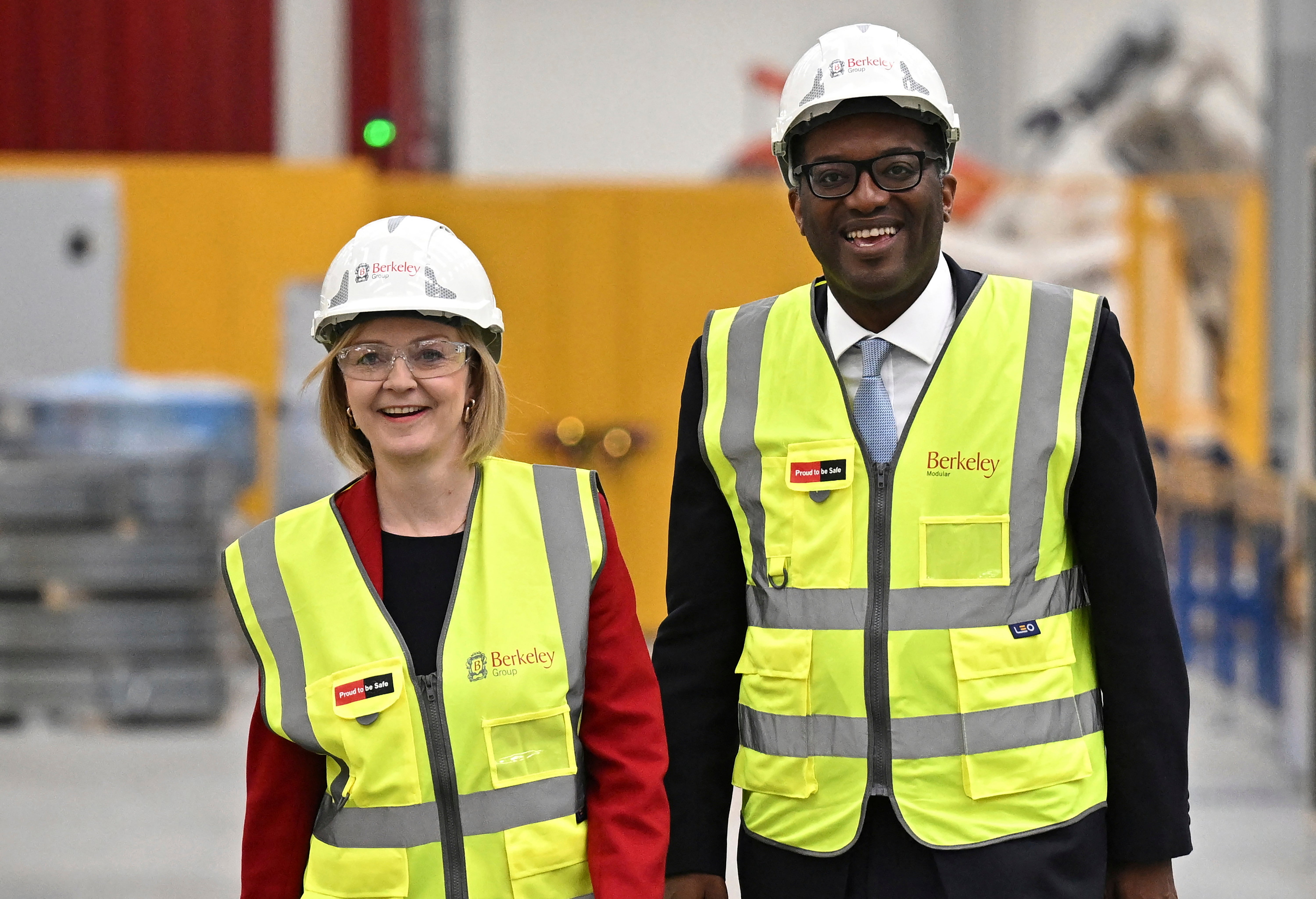Budget tax breaks for ‘affluent’ Tory areas will take funds from poorer places, Labour warns
Wealthier counties containing seats of Liz Truss and her deputy earmarked for ‘investment zones’
The Budget announced by Kwasi Kwarteng on Friday will hand lucrative business tax breaks to “affluent” Tory areas, swiping badly needed funds from areas in greater need, Labour has warned.
Some wealthier counties, including those that contain the seats of Liz Truss and her deputy, are earmarked for “investment zones”, where billions will be handed to businesses to encourage them to invest and grow.
But Labour is questioning how the list of proposed zones – for a policy described as “levelling up in action” by one cabinet minister – has been drawn up.
It comes as Liz Truss is said to be planning more tax cuts in the new year, with moves to further reduce income tax as well as savings for child benefit claimants, The Telegraph reports.
The proposals could see people earning over £100,000 given a tax-free personal income allowance, the scrapping of charges for workers who earn over £50,000 and claim child benefits and a review of the tax paid on pensions over £1 million.
The news came as Friday’s dramatic tax-slashing Budget was branded a “southern comfort” package by the Resolution Foundation think tank, fuelling protests that the plans announced by Mr Kwarteng are unfair as well as reckless.
According to analysis carried out by the foundation, households in London and the South East will benefit by around £1,600 – more than three times the amount by which households in Wales, the North East and Yorkshire stand to benefit.
Sir Keir Starmer criticised the risks taken in the Budget as he arrived at Labour’s annual conference in Liverpool, saying: “Tory casino economics is gambling the mortgages and finances of every family in the country.”
The CBI also hit out at the government for its assumption that tax cuts alone would “suddenly unlock growth”, and called for a “broad-based plan” to turn the economy around, including measures aimed at driving up skills.
Investment zones will offer generous relief on business rates, stamp duty and capital allowance, as well as zero employer national insurance contributions, in a bid to kickstart stagnant investment.
But the proposed areas include Norfolk – the home of the prime minister’s constituency – and the Suffolk base of her deputy Therese Coffey, as well as leafy Bedfordshire, Cheshire, North Yorkshire and Greater London.
“The government has chosen to locate many of these investment zones in affluent parts of the country,” said Lisa Nandy, the shadow levelling up secretary.
“If businesses there aren’t paying tax, businesses everywhere else will have to take the strain. That’s a big ask for small businesses struggling with energy costs and business rates right now.”
The investment zones have already been dismissed as a reheating of George Osborne’s “enterprise zones”, a failed policy that has ended up creating few new jobs over the past decade. Analysis by the Centre for Cities think tank of the Osborne-era zones found that they had created fewer than 14,000 jobs – not the 54,000 forecast – of which more than a third had been displaced from elsewhere.

This finding was similar to that made by the Treasury watchdog in its investigation into freeports. Investment zones are an expansion of the freeport policy.
The chancellor has avoided giving an estimate of the huge bill for up to 38 investment zones, arguing that it is “not possible to publish a costing at this stage”.
Ms Nandy also attacked the watering down of planning and environmental controls, and of affordable housing targets, in the zones as “reckless”.
“This country needs a serious plan for growth, not more recycled, failed Tory ideas. Investment zones have been tried before and not delivered the new jobs or growth promised,” she added.
The extensive list of local authorities in “early discussions” with the government also includes Blackpool, Cornwall, Hull, Liverpool, North of Tyne, Stoke-on-Trent, Sunderland, South Yorkshire, Tees Valley and West Yorkshire.
Simon Clarke, the levelling up secretary, said the investment zones would be “transformational” and would deliver “the defining mission of this government: to grow our economy and level up the country”.
He said: “It means spreading opportunity and lifting living standards in the parts of the country that are full of talent but have been overlooked and undervalued for years.
“It is levelling up in action, and it is levelling up in a Conservative way,” he added, using a slogan coined by Boris Johnson’s government – one that Ms Truss has appeared to shy away from.
Chris Philp, the Treasury chief secretary, defended the vast tax cuts, insisting: “We’re going to do what’s right. We’re going to get growth delivered. And we’re not going to worry about the politics of envy, or the optics of it.”
Join our commenting forum
Join thought-provoking conversations, follow other Independent readers and see their replies
Comments



Bookmark popover
Removed from bookmarks